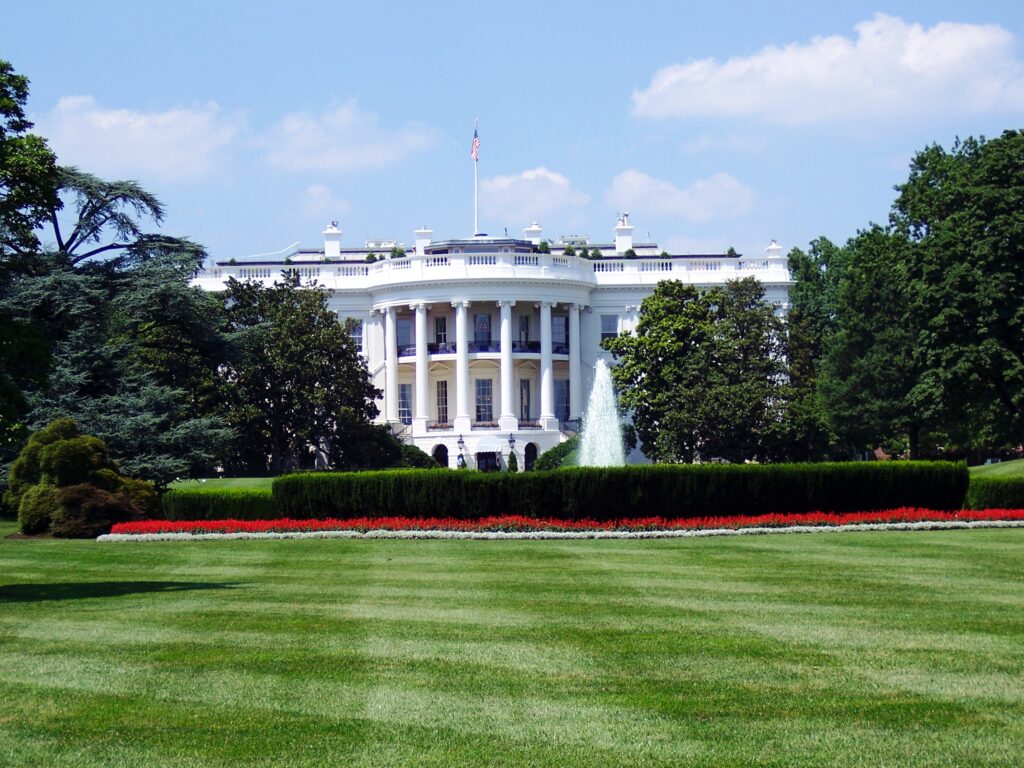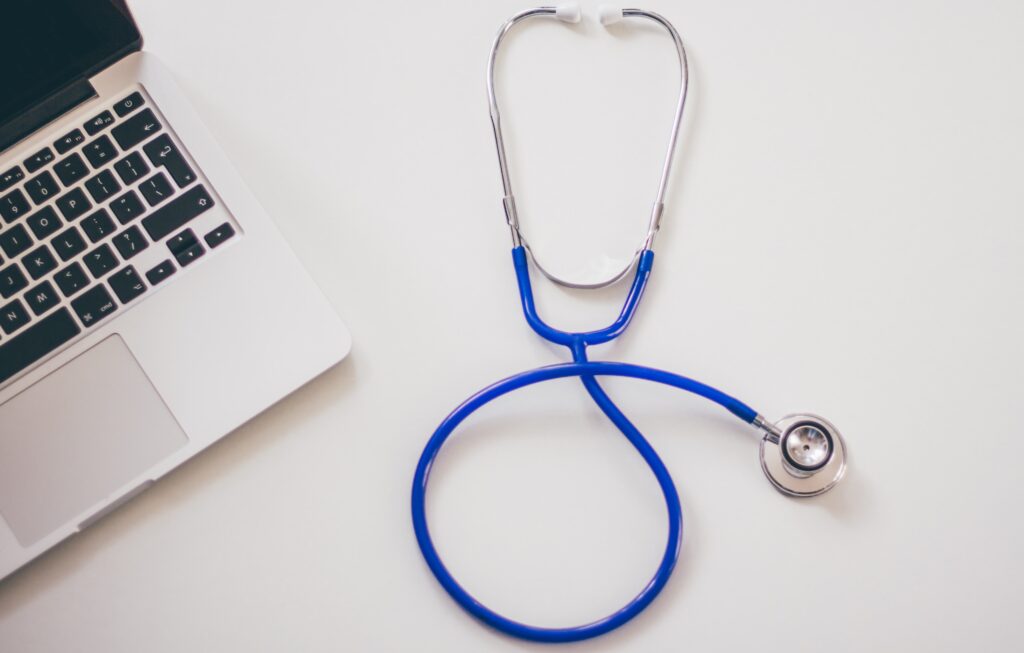Issue 19 (October 3)
White House Announces the Establishment of Office of Gun Violence Prevention
On September 22, the Biden Administration announced the establishment of the first-ever White House Office of Gun Violence Prevention. The office is expected to accelerate executive action and prioritize legislation that reduces gun violence in the United States. During the announcement, the Biden Administration stressed the importance of confronting the issue in a timely manner, highlighting the administration’s ongoing efforts to expand gun violence prevention, including the passage of the Bipartisan Safer Communities Act in 2022.
The priorities of the office include:
- Expediting the implementation of the Bipartisan Safer Communities Act;
- Coordinating more support for survivors, families, and communities affected by gun violence;
- Identifying new executive actions the Biden Administration can take to reduce gun violence;
- Expanding the Biden Administration’s coalition of partners and states to pass gun violence prevention legislation.
For more information on how social science research can be used to create evidence-based policy for gun violence prevention, visit COSSA’s blog, “Why Social Science?”, for a short series on the issue.
Dr. Mark Chan and Dr. Dennis P. Stolle from APA Answer “Why Social Science?”
This month’s Why Social Science? post comes from Dr. Mark Chan and Dr. Dennis P. Stolle from the American Psychological Association who write about the importance of a psychologically healthy workplace.
Read on for more.
Government Shutdown Narrowly Avoided: What’s Inside the Temporary Funding Bill?
After tense negotiations and a race against time, Congress approved a stopgap funding bill on Saturday which will last until November 17, preventing a looming federal shutdown. President Biden signed the bill into law, ensuring that the U.S. government will continue to operate without interruptions. Key provisions include:
- Federal Disaster Assistance: One of the most significant components of this bill is the allocation of an additional $16 billion for disaster relief. This matches President Biden’s request dollar-for-dollar and reinforces the administration’s commitment to addressing recent natural disasters.
- Current Funding Levels Extended: The government’s operational budget has been maintained at the 2023 levels, ensuring no immediate cutbacks in services or functions. This funding will last until November 17.
- Omitting Aid to Ukraine: Arguably the most contentious element left out of the bill is aid to Ukraine. Initially, the White House sought to include it as a priority. However, growing opposition from a faction of GOP lawmakers led to its removal from the final bill.
What’s the path forward? The approval of this temporary measure is only a short-term solution, and Congress will need to regroup to find a more lasting resolution by November 17. Several potential flashpoints and challenges loom on the horizon. The question of aid to Ukraine will be front and center. Additionally, the decision by House Speaker Kevin McCarthy to lean on Democratic support for passing the bill has made his position precarious. Calls for his removal have intensified, as his leadership receives increased scrutiny from his party.
While the immediate threat of a government shutdown has been averted, the contents of this stopgap bill and the political dynamics around it set the stage for a challenging month ahead in Congress. COSSA will keep a close watch as both parties’ attempt to bridge their differences and craft a longer-term funding solution.
Stay tuned for continued updates from COSSA.
ARPA-H Announces New Program ARPANET-H
The Advanced Research Projects Agency for Health (ARPA-H) within the U.S. Department of Health and Human Services (HHS) announced a new nationwide health network, ARPANET-H. Within ARPANET-H, three research hubs have been developed, including the Customer Experience hub, the Investor Catalyst hub, and the Stakeholder and Operations hub. Notably, the Customer Service hub priorities include developing accessible health solutions and diversifying health solutions. The Investor Catalyst hub priorities include transforming innovative ideas into tangible solutions and the Stakeholder and Operations hub will focus on agency and stakeholder partnerships.
Stay tuned to COSSA’s continued coverage of ARPA-H.
BJS Celebrates 50 Years of National Crime and Victimization Survey
On September 27, the Bureau of Justice Statistics (BJS) within the Department of Justice’s (DOJ) Office of Justice Programs (OJP) hosted a public seminar celebrating 50 years of the National Crime and Victimization Survey (NCVS). The survey is the only crime and victimization survey in the United States that addresses underreported crime through survey collection rather than police reporting. The NCVS is used to understand crime patterns and the impact of that crime in different households, recognizing victims that may have been indirectly affected by the crime. The seminar included panels that discussed the past, present, and future of the NCVS, including new tools BJS has developed to modernize the survey.
A recording of the event can be viewed here.
NSF Invests $18.8M in Inaugural Cohort for ExLent Program
The National Science Foundation (NSF) recently announced its inaugural cohort of the Experiential Learning for Emerging and Novel Technologies (ExLENT) program, investing $18.8 million across 27 teams at U.S. institutions of higher education to expand practical learning opportunities and grow talent nationwide. This includes support for teams from minority-serving institutions and historically Black colleges and universities (HBCUs).
Initiated by NSF’s Directorates for Technology, Innovation, and Partnerships (TIP) and STEM Education (EDU), ExLENT is primed to offer hands-on learning experiences in sectors outlined in the CHIPS and Science Act. This spans areas like advanced manufacturing, artificial intelligence, biotechnology, quantum information science, and semiconductors. Mentorship forms the backbone of the ExLENT program, leveraging a cohort-centric model.
James L. Moore III, NSF assistant director for EDU, shed light on the program’s broader vision. “With the rapid advancements in key technologies, it’s imperative to build a diverse STEM workforce that’s equipped and motivated to drive this innovation,” Moore said. “ExLENT promises not just learning but also the fostering of essential industry relationships, dovetailing with our nation’s strategic priorities.”
Learn more about the ExLENT program here.
NSF Supports Efforts to Broaden Participation in the Nation’s Technology Workforce
The National Science Foundation (NSF) has pledged a commitment of nearly $5.8 million towards two pivotal projects, partnering with the Council of Graduate Schools (CGS). Aimed at promoting inclusivity in the advanced degree programs across key technological areas identified in the CHIPS and Science Act, this investment will bolster data resources and aide endeavors in the recruitment and retention of domestic graduate students from diverse backgrounds in STEM fields.
Their collaborative goal with CGS is to broaden the scope of existing survey designs to collect data on graduate applications, admissions, enrollment, and completion rates. Encompassing around 60 institutions, this survey is expected to bring greater insights on prevalent trends, challenges, and opportunities. These insights will direct NSF’s future workforce development investments and enable universities to attract a diverse student demographic.
An additional grant of $1.1 million over three-years has been designated to facilitate the expansion of CGS’s National Name Exchange (NNE) program. Established to connect graduate schools with underrepresented students, to widen the participation circle with minority-serving institutions. This augmented NNE initiative will fortify universities’ recruitment processes, strengthen the STEM career pathway, and help bridge data gaps.
Suzanne Ortega, CGS President, commented, access to STEM graduate education is the backbone of a resilient workforce and economy. Expressing gratitude towards the NSF, she mentioned, these projects will not only enhance our understanding of students’ educational trajectories but will also aid in removing hindrances in the path to degree completion, especially in sectors of national significance.
View further details on CGS and the National Name Exchange program here.
HHS Proposes New Rule to Prevent Discrimination Against Individuals with Disabilities
The Office for Civil Rights (OCR) within the U.S. Department of Health and Human Services (HHS) has proposed a new rule, Nondiscrimination on the Basis of Disability in Programs or Activities Receiving Federal Financial Assistance, to prohibit discriminatory practices against individuals with disabilities. The new rule intends to expand upon Section 504 of the Rehabilitation Act of 1973. It would clarify already existing protections and implement new conditions within this act, including:
- Eliminate bias and discrimination in medical treatment decisions against individuals with disabilities;
- Clarify requirements for web, mobile, and kiosk accessibility;
- Establish standardized requirements for accessible medical equipment;
- Clarify requirements in HHS-funded child welfare programs and activities;
- Eliminate the use of value assessment methods on life-extension practices that discriminate against individuals with disabilities; and
- Clarify requirements to provide services in settings as requested by individuals with disabilities.
HHS is requesting public comment on the proposed rule that can be submitted here. Comments are requested by November 13.
NIH Requests Comments on Biomedical and Behavioral Research Real-World Data
The National Institutes of Health (NIH) released a request for comments on the collection, use, and sharing of biomedical and behavioral science research real-world data (RWD). RWD refers to observational data that is gathered from patients in real-world settings, including but not limited to patient surveys and electronic records. As the NIH develops guidelines for RWD, submitted comments are expected to aid the NIH in understanding public concerns of this type of data. The public is asked to comment on the following items:
- The value of RWD in NIH-funded research including opportunities, challenges, and barriers in biomedical and behavioral science research;
- The process of validation and verification of RWD including methods of reproducibility and open science practices;
- Methods of collection, use, and sharing of RWD for biomedical research; and
- Ethical implications of the use of RWD.
Comments are requested by December 14 and can be submitted here.
NIMH Launches New Podcast Series to Commemorate its 75th Anniversary
The National Institute of Mental Health (NIMH) within the National Institutes of Health (NIH), in celebration of its 75th anniversary, announced the inauguration of their new podcast series, “Mental Health Matters”. This series aims to dive deep into the narrative journeys of key figures making strides in mental health research while also spotlighting the experiences of individuals navigating life with mental health challenges.
Episode one is titled, “Understanding and Preventing Youth Suicide.” The episode features a compelling conversation between NIMH’s Director, Dr. Joshua A. Gordon, and Dr. Arielle Sheftall, an Associate Professor in the Department of Psychiatry at the University of Rochester Medical Center.
Listeners will be taken on an educational and emotional exploration of youth suicide, gaining insight into those more susceptible to it and grasping the profound implications it has on younger demographics and how to counteract this heartbreaking phenomenon.
Tune into the NIMH podcast series available here.
Dr. Rayvon Fouché to Deliver 2023 Henry and Bryna David Lecture
On October 12, Dr. Rayvon Fouché will deliver the 2023 Henry and Bryna David Lecture titled, “Embracing the Social in Social Science: Notes for a Technoscientific Future”. Dr. Fouché is a Professor of Communication Studies at the Medill School of Journalism, Media, and Integrative Marketing Communications at Northwestern University.
The annual lecture is a program of the National Academies of Sciences, Engineering, and Medicine’s (NASEM) Division of Behavioral and Social Sciences and Education (DBASSE). This year, the lecture explores how integrating the social into all scientific inquiry can transform the science we do and why we do it.
Register to attend the lecture in-person or virtually here.
Research!America Opens Applications for Civic Engagement Microgrant Program
Research!America has opened their applications for the 2023-2024 Civic Engagement Microgrant Program. The program supports groups of early career STEM researchers and their projects to increase scientists’ engagement with their local community, community leaders, and elected and non-elected public officials.
Microgrants of up to $4,000 will be awarded to STEM graduate student and postdoc-led groups. These funds provide opportunities for grantees to develop skills in areas such as communication and program planning, along with an understanding of public policy and government to have an impact in their local communities.
Applications close on October 24. Additional information and application guidelines can be found here.
Register for AERA’s 20th Annual Brown Lecture in Education Research
On October 19, the American Educational Research Association (AERA), a COSSA governing member, will host its 20th Annual Brown Lecture in Education Research. The annual lecture aims to illuminate the important role of research in advancing understanding of equality and equity in education.
The 2023 lecture is titled, “Otherwise Qualified: The Untold Story of Brown and Black Educators’ Professional Superiority” and will be delivered by Dr. Leslie T. Fenwick, professor and dean emerita of the Howard University School of Education, and dean in residence at the American Association of Colleges for Teacher Education.
Register for the event (virtually or in-person) here.






